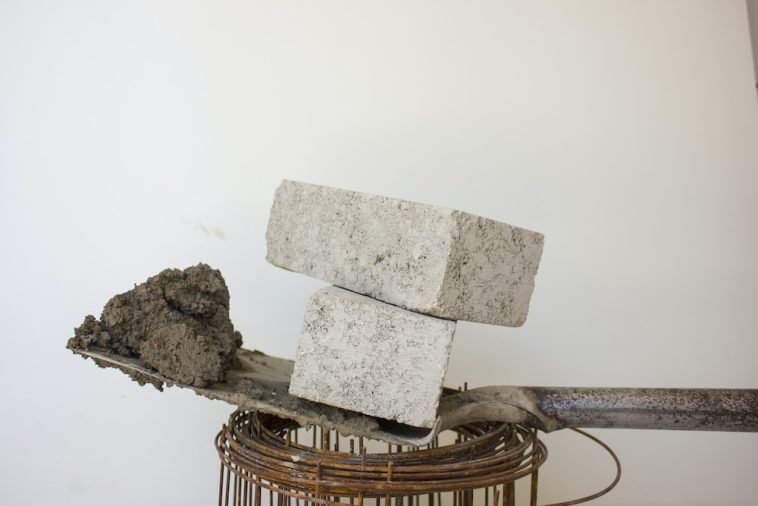Introduction.
Starting a cement distribution business in Nigeria is one of the smartest ways to tap into the country’s growing construction industry.
With the rapid urbanization, infrastructure development, and population growth, the demand for cement in Nigeria is booming. This presents a massive opportunity for anyone willing to venture into the business.
If you’re thinking about starting a cement distribution business, you’re in the right place.
This guide will walk you through everything you need to know, from understanding the market to setting up your business, and even how to deal with logistics and competition. Let’s take a look at why this is such a great business idea and how you can get started.
Why the Cement Distribution Business is a Smart Choice in Nigeria
Cement is essential in the construction of buildings, roads, and infrastructure. As Nigeria’s population continues to grow, so does the need for more houses, schools, roads, and other types of infrastructure.
This demand drives the need for cement in the market. According to the Nigeria National Bureau of Statistics, the construction sector alone contributed about 3.1% to the country’s GDP in 2022, and that number is only expected to rise. So, you can see why cement distribution is a profitable and sustainable business to get into.
What You Need to Start Your Cement Distribution Business
Starting a cement distribution business in Nigeria doesn’t have to be a complex process. Here are the key steps to get you started:
1. Research the Market
Before diving in, it’s important to understand the cement market in Nigeria. Different regions have different demands for cement. In some areas, construction might be booming, while others may have a slower pace of growth.
Also, look into the major cement brands available in Nigeria, like Dangote, Lafarge, and BUA Cement, and figure out which ones are popular in your target region.
2. Create a Solid Business Plan
A business plan will guide you through the entire process of setting up your cement distribution business. It should outline your goals, target market, startup costs, and how you plan to make a profit.
For example, you’ll need to decide if you want to buy cement from a manufacturer directly or from a wholesaler. The plan should also include your pricing strategy and marketing approach.
3. Register Your Business
In Nigeria, you need to formally register your business with the Corporate Affairs Commission (CAC). This is necessary for operating legally and gaining trust with suppliers and customers. You’ll need to pick a name, get an official business registration number, and obtain any necessary licenses for distributing cement.
4. Secure Funding
Starting a cement distribution business can require significant capital, especially if you’re planning to buy in bulk.
You will need money for purchasing the cement, setting up storage facilities, and covering your transport and delivery costs. You may want to approach banks or investors to raise the funds, or even explore grants available to small businesses in Nigeria.
5. Find a Reliable Supplier
To run your cement distribution business successfully, you’ll need a reliable supplier. In Nigeria, some of the top cement producers include Dangote Cement, Lafarge Africa, and BUA Cement.
You can contact these companies directly to establish a supply agreement or work with wholesalers. Ensure that the supplier you choose offers competitive prices, good quality, and consistent delivery.
6. Location and Storage
Once you have a supplier, it’s time to think about where you’ll store your cement. You’ll need a warehouse or storage facility to keep the cement safe and in good condition.
The location must be easily accessible for transportation and close to areas with high construction activity. Consider factors like security and space when choosing your warehouse.
7. Transport and Delivery
The logistics of transporting cement can be tricky, especially because cement is a heavy product. You will need reliable trucks to deliver the cement to your customers, whether they are construction companies, hardware stores, or individual builders.
Think about the costs of maintaining your vehicles and whether you want to own your trucks or partner with a transport company.
8. Marketing Your Cement Distribution Business
Once your business is up and running, you’ll need to start attracting customers. You can use traditional marketing methods like print ads, word of mouth, and flyers, or you can go digital with a website and social media presence. Partnering with construction companies and hardware stores can also help you get your products to the right customers.
9. Customer Service
Great customer service is key to growing your business. Always ensure timely deliveries, high-quality products, and offer competitive prices. The construction industry is competitive, so maintaining good relationships with your customers can lead to repeat business and word-of-mouth referrals.
Key Challenges You Might Face
While the cement distribution business has a lot of potential, there are a few challenges you might encounter along the way:
- Competition: The cement business in Nigeria is highly competitive. You’ll be up against major players like Dangote and Lafarge, who already have a strong market presence. However, with proper planning and good customer service, you can carve out a niche for yourself.
- Logistics: Transportation is a big part of the cement distribution business. Roads in some areas can be bad, and getting cement to customers on time can be difficult if you don’t have reliable vehicles.
- Price Fluctuations: The cost of cement can vary depending on factors like fuel prices, production costs, and the market. This can make it hard to set fixed prices for your customers, so you’ll need to stay flexible.
- Government Regulations: There may be government regulations and taxes that affect your business, so it’s important to stay updated on local laws and ensure compliance.
FAQs
1. How much capital do I need to start a cement distribution business in Nigeria?
The capital needed will depend on the scale of your business, but you should expect to spend anywhere from N500,000 to several million Naira. This will cover the cost of purchasing cement, transportation, storage, and other initial expenses.
2. Do I need a warehouse to start my cement distribution business?
Yes, a warehouse or storage facility is essential for storing cement safely and in large quantities. The location should be accessible for transport and close to where the demand for cement is high.
3. Can I distribute cement without being a direct supplier?
Yes, you can partner with a manufacturer or wholesaler to distribute cement. Many people operate as middlemen between manufacturers and construction companies, especially if they don’t have the capital to purchase cement directly from the factories.
4. How can I compete with big brands like Dangote and Lafarge?
By focusing on excellent customer service, timely delivery, and competitive pricing, you can build a strong customer base. Also, focusing on a specific region or niche market can help you stand out.
5. What are the profit margins like in the cement distribution business?
Profit margins in the cement distribution business can range from 10% to 20%. The margin might be low, but the volume of sales is high, so there is potential for good earnings.
Conclusion
Starting a cement distribution business in Nigeria can be an incredibly profitable venture, especially with the country’s rapid growth in construction and infrastructure.
By taking the right steps—doing your research, securing reliable suppliers, investing in good logistics, and offering excellent customer service—you can build a successful business in this booming sector.
So, what are you waiting for? Do you have the right plan and passion to dive into the cement distribution business in Nigeria?





GIPHY App Key not set. Please check settings